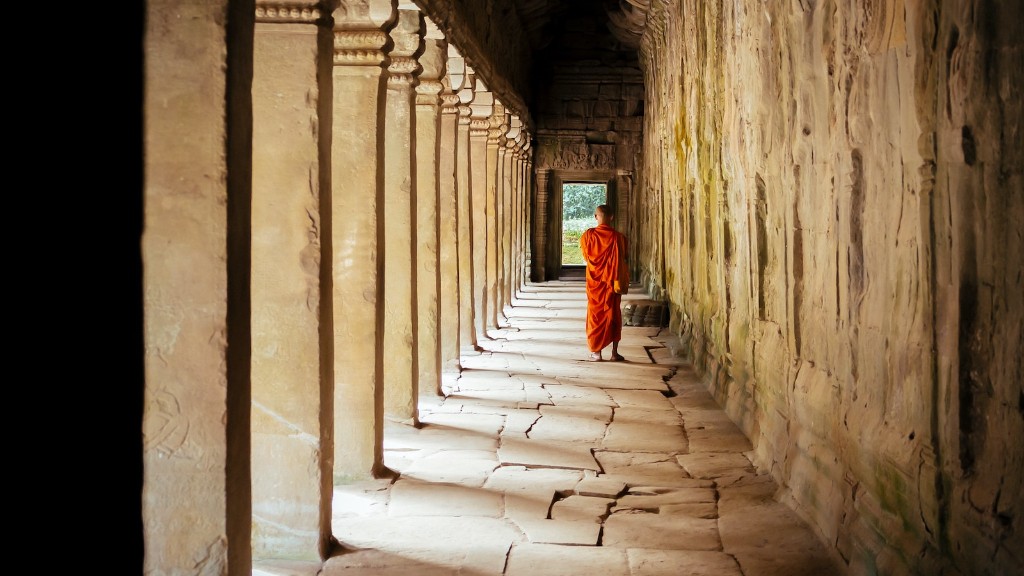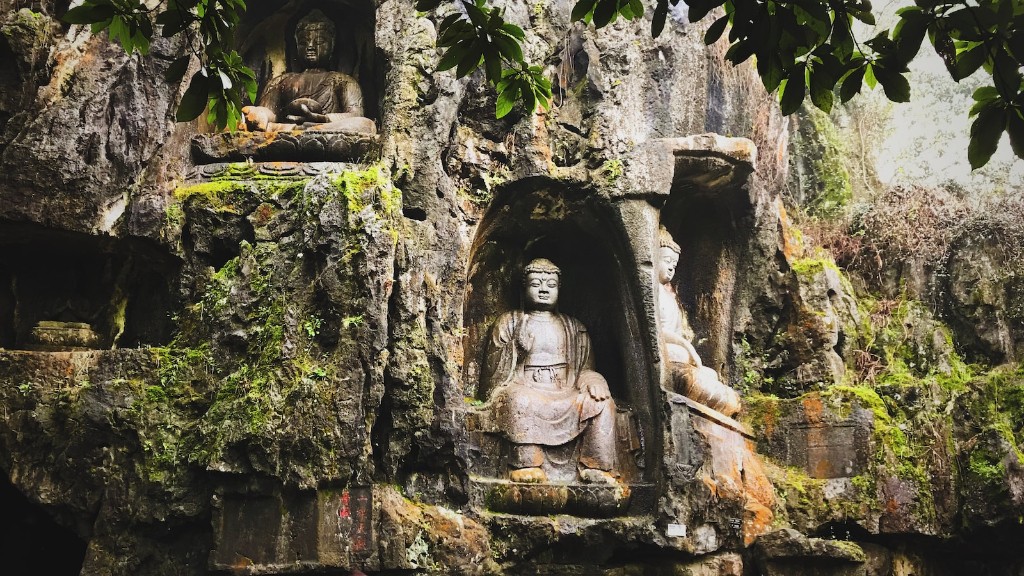Buddhism originated in India over 2,500 years ago and is based on the teachings of Siddhartha Gautama, who came to be known as the Buddha, or “enlightened one.” The Buddha taught that the way to end suffering is to let go of desires and attachments. The core beliefs of Buddhism include the Four Noble Truths, which state that suffering is real and caused by our desires, and that it is possible to end our suffering by letting go of those desires. Other core beliefs include the law of karma, which teaches that our actions have consequences in this life and in future lives, and the importance of compassion and helping others.
There are three core beliefs in Buddhism:
1. The Three Universal Truths
2. The Four Noble Truths
3. The Noble Eightfold Path
What are 5 basic beliefs of Buddhism?
The Five Precepts are guidelines for living a wholesome and meaningful life. They are:
1. Refrain from taking life
2. Refrain from taking what is not given
3. Refrain from the misuse of the senses
4. Refrain from wrong speech
5. Refrain from intoxicants that cloud the mind.
These precepts provide a framework for living a life of integrity, compassion and wisdom. They are not commandments or rules, but rather suggestions for how to live a life that is in harmony with others and with our own true nature.
Buddhism is a religion that was founded by Siddhartha Gautama. It is based on his teachings, which emphasize the importance of karma, rebirth, and impermanence. Buddhism has grown to become one of the largest religions in the world, with over 500 million followers.
What are the core values of Buddhism
Buddhists believe that people should try to end suffering; all things should be seen as having no self or essential nature. The main Buddhist values are love, wisdom, goodness, calmness and self-control
Buddhists believe that human life is a cycle of suffering and rebirth. However, it is possible to escape this cycle by achieving a state of enlightenment (nirvana). Siddhartha Gautama was the first person to reach this state of enlightenment and was known as the Buddha.
What is one of the most important beliefs in Buddhism?
The Buddha realized that the root of all suffering is our attachment to things that are impermanent. because we cling to them so desperately, we suffer when they inevitably change or go away. The Buddha also realized that we have no permanent, unchanging self or soul. This means that the ego-based happiness that we so often chase is also ultimately unfulfilling. The Buddha’s teaching is designed to help us see through the illusion of our attachments and egos, so that we can find true peace and happiness.
There are inherent and fundamental differences between Buddhism and Christianity, one significant element being that while Christianity is at its core monotheistic and relies on a God as a Creator, Buddhism is generally non-theistic and rejects the notion of a Creator God which provides divine values for the world. This difference is significant because it means that Christians believe in a God who is interested in and involved in the world, while Buddhists believe that humans are responsible for their own lives and must create their own values.
Do Buddhist believe in God?
Buddhism is a tradition focused on spiritual liberation, not Theistic religion. The Buddha himself rejected the idea of a creator god, and Buddhist philosophers have argued that belief in an eternal god is a distraction for humans seeking enlightenment.
Buddhist teaching views life and death as a continuum, believing that consciousness (the spirit) continues after death and may be reborn Death can be an opportunity for liberation from the cycle of life, death and rebirth.
Do Buddhists believe in heaven
There is no concept of punishment or reward in Buddhism and there is no divine being who decides who goes to hell or heaven. There is only the illusory results of our thoughts, words and deeds, which we call karma.
Buddhism is a religion that was founded by Siddhartha Gautama over 2,500 years ago in India. It is one of the major world religions, with over 470 million followers worldwide. The Buddha taught that the way to end suffering is to end our attachment to things that are not permanent, like our bodies and our possessions. He also taught that we should live our lives with compassion and kindness.
Do Buddhists get along with Christians?
This is a difficult question. Christianity and Buddhism have different beliefs when it comes to things like God, creation, and salvation. For Christians, there is only one God and people are saved through His grace. Buddhists, on the other hand, believe in reincarnation and enlightenment. Nirvana is the ultimate goal for Buddhists. It’s hard to see how these two sets of beliefs could be compatible.
Despite the great diversity of Buddhist traditions across various countries, Buddhism in general has restricted the consumption of alcohol since early times. The Buddha himself is said to have discouraged his followers from consuming alcohol, and many of the early Buddhist texts contain warnings about the dangers of intoxication. In recent years, some Buddhists have begun to reassess the traditional stance on alcohol, but the general consensus remains that it is best to avoid it altogether.
Do Buddhists believe in Christmas
Buddhists generally celebrate Christmas in their own way, rather than in the Christian way. They often view Jesus as an avatar of being blessed to our beloved Earth.
The Buddhist teachings on devas is that they are divine beings that exist in different realms or heavens. They are not to be worshiped, but they can be helpful to humans if they are propitiated. There are many different types of devas, each with their own functions and attributes. Some devas are said to live on Earth, while others live in the heavens.
According to the doctrine of saṃsāra, humans are reborn into different realms after they die. These include the realms of the devas, as well as other Buddhist deities. The goal of Buddhism is to escape the cycle of rebirth and attain nirvana.
Do Buddhist believe in karma?
Karma is a central concept in Buddhism, and refers to the actions and consequences of those actions. Buddhists believe that bad actions in a previous life can follow a person into their next life and cause bad effects. Even an Enlightened One is not exempt from the effects of past karma. This belief has implications for how Buddhists view this life and what happens after we die.
Buddhist followers pray to buddhas, bodhisattvas, and spiritual masters in order to invoke the enlightened qualities of the heart and mind. By letting go of the ego’s resistance to humility, they are able to connect with these higher powers and receive guidance and strength. These prayers help us to remember our own potential for greatness, and to access the infinite wisdom of the universe.
Final Words
There are three core beliefs in Buddhism: the Four Noble Truths, the doctrine of karma, and the concept of rebirth. The Four Noble Truths are the truth of suffering, the truth of the origin of suffering, the truth of the cessation of suffering, and the truth of the path to the cessation of suffering. The doctrine of karma is the belief that good and bad actions have consequences in this life and in future lives. The concept of rebirth is the belief that after we die, we are reborn into another life.
There are many core beliefs of Buddhism, but the most fundamental belief is that all beings have the same potential to achieve enlightenment. Buddhists also believe in rebirth and the law of karma.


